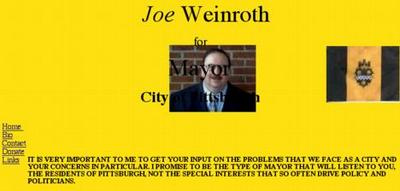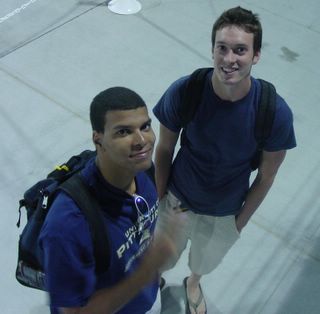Why rush into anything that lasts forever. Besides, in 2006 we'll be focused on the All-Star Game and won't want to read anything like a 300 page report before then.
Mayor Street did hit upon a point that I stressed in the past when those in Harrisburg wrote the legislation: The new license are sold at a fixed price and they go forever. We need to put "expiration dates" on these protected, state-granted limited opportunities that amount to monopoly status.
Philadelphia Inquirer | 08/17/2005 | Report weighs sites for Phila. slots parlors
'We only get one chance to do this,' Street said. 'They will be here forever.'
The city could make the most money, the report said, if it places a slots parlor along the Delaware River near South Columbus Boulevard and another near the Schuylkill Expressway and Route 1.
Under the state gambling law, the city gets 4 percent of a casino's gross revenue, which, under this combination, could be as much as $34 million. The city could also gain about 9,500 jobs, said Bernard E. Anderson, a professor at the Wharton School and cochair of the task force.
Among the financial benefits to the city would be a clause in the gambling law that calls for the casinos to help pay the operating costs of the Convention Center. That formula would save the city about $18 million a year. And the city is expected to gain $10 million to $15 million a year in city taxes on the casinos and their workers.
For example, why not sell a 15-year license to develop the Hays site with gambling. But, make it a stipulation that there will be NO GAMBLING within 5 miles of HAYES for the next 50 years. The "limited engagement" wrinkle is often known as a "sunset" in legislative speak. For the citizens, it can be powerful leverage. The ownership dynamics would change. Homeownership would rise. People would be okay with a buy-in on the coat-tails of gambling in the neighborhood if there was a guarantee that gambling would depart at a certain period.
Show us what Hayes is like today, with construction of a gambling site, as a gambling site, then as a non-gambling site. Then take a wider view and show the general area around Hays in all of these instances.
1. Presently, the Hays site is wooded hillsides. The area around Hays is suburban homes.
2. Construction brings bulldozers and natural resources extraction. Meanwhile the houses rattle.
3. Gambling casino enters. Another strip mall might come in the area, up from the Waterfront. Houses survive, we expect.
4. Gambling departs, new townhouses emerge, or a par-3 golf course, etc. The homeowners thrive.
The real estate investment prospects for present owners would be greater in the long-term if the gambling term had a limit in years. They are going to take a beating in the short-term given the truck traffic, the uncertain prospects, and the new jams sure to await.
Philly is also trying to pin some of the new gambling incomes to cover the costs of the Convention Center operations. The same formula is being considered in Pittsburgh too as the Stadium Authority is going deeper into debt and they await some windfall from gambling to cover the bills at the new Pittsburgh Convention Center.
I don't want to see the new gambling profits go in an ongoing basis to prop up the white elephant also known as the Pittsburgh Convention Center. The best way to solve all these ills at once is to force the new gambling casino to take ownership of the new Convention Center.
The citizens would then MAKE money off of the Convention Center and keep more of the money from the the ongoing gambling windfalls for other projects -- not the Convention Center.
Pittsburgh should insist upon the selling of the new Convention Center to the gambling license holders.
The best place to build a new Gambling Casino is within the Convention Center. That is a perfect location. The gambling operators would love the location.











